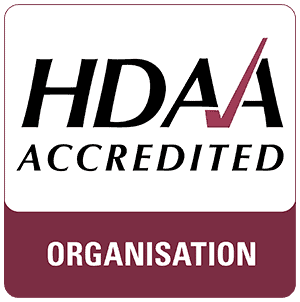





Professional support for those ready to address alcohol dependence with compassion, clarity, and a focus on sustainable recovery.



If alcohol has taken a serious toll on your health, relationships, work, or sense of self, you’re not alone. Many people reach a point where drinking is no longer something they can control—and where real, structured support becomes essential for change.
At Palladium Private, we provide evidence-based support for individuals living with alcohol use disorder in a discreet, calming environment. Our alcohol rehabilitation retreat is designed to give you the time, space, and support needed to reset and reconnect. Whether this is your first time seeking help or part of a longer recovery journey, we meet you with respect, not judgement.
We understand that alcohol use is often a coping mechanism for something deeper — stress, trauma, depression, or unresolved grief. That’s why we don’t just focus on the behaviour itself. We work with you to understand and address its underlying causes, so change feels possible and lasting.
At Palladium Private, each client is supported by a team of multidisciplinary practitioners such as a therapist, counsellor, yoga therapist, nurse, and personal trainer.
But it’s not just about seeing different professionals, it’s about how they work together. Behind the scenes, your team collaborates closely to ensure your psychological, physical, and emotional needs are supported in an integrated, personalised way. From your first assessment to your aftercare planning, you remain at the centre of a carefully coordinated treatment approach focused on sustainable change.
They understand how complex alcohol use can be, and they know what it takes to move through it with care, patience, and support. You’ll never be met with judgement, just experienced professionals who are committed to helping you find your way forward.
For many people, alcohol use begins as a way to cope with stress, anxiety, loneliness, or emotional pain. Over time, what once felt manageable can become overwhelming, affecting every part of life and taking a serious toll on your health, relationships, and sense of self.
Some clients arrive at Palladium Private simply wanting to stop drinking and regain control. Others are ready to explore the deeper experiences or patterns that may have contributed to their dependence. Wherever you are on that journey, our role is to provide a safe, supportive framework for you to build new strategies and to guide deeper healing, if and when you’re ready.
Alcohol use affects far more than mood. It impacts your sleep, your energy, your physical resilience, your immune system, and your sense of emotional balance. That’s why we treat more than the behaviour—we support the whole person.
Your program brings together one-on-one psychological therapy, physical wellbeing sessions, mindfulness practices, nutritional guidance, and emotional regulation workshops. Importantly, your team works in close collaboration to adapt your plan as you progress, ensuring that every element of your recovery is connected, purposeful, and aligned with your personal goals.
Set in the Sunshine Coast hinterland, Palladium Private offers a quiet, retreat-like setting where you can take a step back from everyday triggers and focus on healing. Clients often tell us that the natural surroundings help create a sense of calm and clarity that’s difficult to find elsewhere.
This space gives you the breathing room to reflect, reset, and begin rebuilding a life that feels more stable, more connected, and more your own.
For clients who need detox support, we offer a medically supervised service on-site. This allows you to safely stabilise before beginning deeper therapeutic work.
Detox is provided as an additional service and incurs an extra cost.
Our residential alcohol rehab program provides a calm, supportive setting where clients can step away from everyday stressors and focus on meaningful recovery. Located in the Sunshine Coast hinterland, our retreat gives you the space to reflect, heal, and begin again, away from everyday triggers and pressures.
You’ll work with a dedicated team that may include a therapist, counsellor, yoga therapist, personal trainer and nurse. Each client receives a personalised program, with therapeutic, medical, and holistic components woven together to support all aspects of recovery.








Taking the first step can feel daunting—but it doesn’t have to be. We’ll walk you through program options, availability, costs, and available funding streams—so you have everything you need to make the decision that’s right for you or someone you care about.
01
Enquire: Submit the form or call 1300 573 095.
02
Complete Questionnaire: Help us match you with the right program.
03
Choose Funding: Explore self-funding, super or DVA options.
04
Confirm Admission: Secure your place and prepare to begin.
05
Arrive & Detox (If Needed): Begin with supported detox if required.
06
Begin Program: Orientation, assessments, and your tailored schedule.
You don’t have to navigate this alone. Whether you’re reaching out for yourself or someone you care about, our experienced intake consultants are here to listen — without judgment or pressure.
You deserve expert care, and we’re ready when you are. One conversation is all it takes to begin.
If drinking is starting to impact your health, relationships, work, or sense of control, it may be time to reach out for support. You don’t need to be drinking every day or meet a certain threshold to benefit from a residential program. At Palladium Private, we support people across a wide spectrum of alcohol use, including those who may not have a formal diagnosis but feel like something needs to change.
If required, we offer an on-site medical detox with nursing support. This is typically completed in the early phase of your stay, allowing you to safely stabilise before engaging in deeper therapeutic work. Not all clients need a detox period, and this will be discussed with you during your intake assessment.
Please note that detox is offered as an additional service and incurs an extra cost, which will be outlined as part of your personalised intake plan.
Our program combines psychological therapy, medical care, and holistic support to address both the physical and emotional aspects of alcohol use. You’ll participate in individual therapy, group psychoeducation, physical wellbeing sessions, mindfulness and breathwork, and nutritional support. The goal is not just to stop drinking, but to understand why you’ve been relying on alcohol and to develop new, healthier ways to cope.
Absolutely. Many of our clients come to Palladium Private after trying to stop on their own, or following a previous attempt at recovery. We understand that relapse is not failure — it’s part of a complex process. Our team works with you to understand what’s contributed to past challenges and how to move forward with renewed insight and support.
We recommend a multi-week stay to allow enough time for meaningful progress. While 4 to 5 weeks is clinically ideal, we understand that each person’s needs and circumstances are different. Our team will work with you to determine the most appropriate length of stay during the assessment process.
Before completing your program, you’ll receive a personalised aftercare plan to support your transition back to daily life. This may include referral pathways, relapse prevention strategies, and access to ongoing therapy. Our focus is on helping you maintain the progress you’ve made and stay connected to the supports that matter most. Learn more about how we support you beyond your stay and discover more about Our Program.
When it all feels like too much, something needs to change.
Whether it’s for you or someone you love, you don’t have to keep living this way.
There is a path forward. Let’s take the first step together.
F A C I L I T I E S & S E R V I C E S N O T I C E